作者: system

撰文:財商教育學院校長(正規課程)關顯彬
有人曾說:「窮養孩子可能是最好的教育」。
可是生於物質極豐盛年代下,父母大都已經富裕起來,一方面難讓現今孩子體會「知足」,更難返回貧窮日子重新激發他們生活「意志」,懂得如何生活。但起碼父母應該要檢視:
1. 自我的金錢觀念是否正確?有否一直影響下一代?
2. 別讓孩子太隨意跟大人同一方式生活
很多時候,筆者觀察生活中出現一種共同現象,就是成年人做甚麼,小朋友自然跟著做甚麼。沒錯,天下父母總將最好的生活質素給孩子,吃好的…住好的…用好的…彷彿將兩代間的生活距離拉近了而做成一種錯覺,兩代相同生活方式一切變成理所當然,舉例來說,五六歲孩子跟父母一起飲珍珠奶茶可以嗎?你發現到問題嗎?
大家有否察覺到很多現象,只是父母(世界)不經意中拉快了孩子的成長步伐,很多教育及心理專家都告訴我們生活供應太多給孩子,反而阻礙孩子健康成長。所以筆者提出除了同桌吃飯及同一屋簷下生活,父母別要在生活中主動拉貼孩子同樣的生活水平,事事跟父母看齊,因為孩子未有經濟能力,心智未成熟,發育未健全,亦未夠理解能力等種種因素。
所以下次孩子跟爸媽說:「你們都在用iPhone,我也要有此款手機 」時,我建議父母要清晰告訴孩子:「我們之間應該都有一點生活距離」,特別成年人擁有某些物質時候,讓他明白我們之間的生活方式不盡相同。另一方面,父母告訴我們之間的分別基於大人勤奮讀書,將來能夠賺到錢,養活自己和家人,更能夠用自己儲蓄的錢買自己想買的東西。趁機讓孩子明白靠自己學會成長多重要,父母藉此應為孩子補上一課:開始教孩子管理金錢,計劃未來,鼓勵他提昇自己生活能力,找到自己奮鬥方向,不致提早躺平。
父母緊記一個重要原則:「愛錫卻不放縱孩子」,留一步給予孩子成長空間,培養自我具備「擁有好東西」的能力,同時教孩子生活有界線,漸漸學會知足,自然懂得自我生活。


撰文:家庭動力創辦人及行政總監
婚姻及家庭治療師
兒童遊戲治療師吳綺琴
很多家長都這樣投訴,説子女愈大愈不願意跟父母説話,感情變得疏離冷漠。父母開始不知道子女的腦袋裡想甚麼,他們的學校生活是怎樣的,朋友是怎樣的。就眼睛所見,都是打機、看電視、上網、Whatsapp、WeChat和Instagram!父母不期然產生一種無形的不安,因為與所愛的子女好像脫了軌,沒有連繫一樣!父母愈不安,愈想把子女拉回身邊。但所用的方式,往往是查問、規管、批評和責備,對孩子的行為既不理解也不信任。父母的「著緊」及「關心」,在孩子的角度,只感到父母操控及無理!結果父母愈想拉近子女,子女愈想逃避父母!這種追逐令親子關係變得緊張而難堪,實在十分可惜!
無論對社會的演進及下一代的培育,父母的角色都最為重要。父母的責任是多重的:關愛、供養、教導和示範等等。最能令父母與子女的關係連繫起來,產生正面的互動,就是父母傳遞愛與關懷的方式,能令子女真正感受得到。有時父母會驚訝地問:「我這樣還不算是關心嗎?他怎可能感受不到呢?」其實每個孩子的需要可能不同,他們渴望得到關心的模式也可能不一樣。若父母不是用孩子的角度出發,只一廂情願用自己的角度去理解,及用自己習慣的方法去關心,就算父母圍著孩子「氹氹轉」,都一樣可能產生以上的的結果:一個追、一個走!
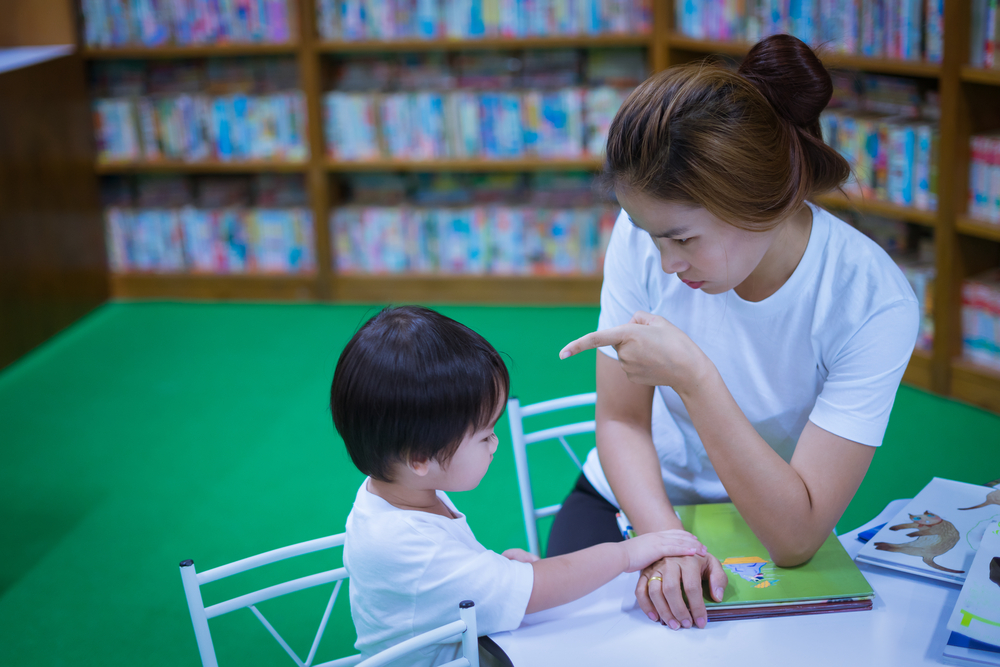
要讓孩子真正感受到父母的愛及關懷,關鍵在於父母的著眼點是在孩子本身,抑或只是在孩子的表現。父母的關懷若是在孩子身上,孩子一定會感受得到,他們亦會以正面的方式來回應。若父母關心的只是孩子的表現,孩子遲早會與父母疏離,甚至把他們拒之於門外。
若我們對比以下這些父母對孩子的説話,就可知道「關心孩子」與「關心孩子表現」的分別:
當父母放工回家問孩子:
A「你今天返學開心嗎?」
B「今天的功課你做好了嗎?」
孩子測驗拿了65分,父母說:
A「你拿了這個分數是否很失望呢?也許你會感到不開心,你可與我分享你的心情啊!」
B 「你平日又懶又不專心,這樣可以拿到好成績嗎?你若不再更努力,下次還會不及格添,甚至有機會留級!」
在忙碌的生活節奏中,建立良好的親子關係實不容易!與子女建立正面的互動及連繫,才能在孩子成長的路途上,不斷給予鼓勵及支持。如果稍一不慎,選擇了錯誤的表達方式,縱然父母心裡有很多愛,子女也未必接受!


撰文:兒童發展心理學專家梁嘉敏小姐
DHA 只是供應孩子腦部發展的養分,要孩子變得聰明,大腦必須得到適當的鍛鍊。筆者今次就為大家介紹一些腦袋鍛鍊小遊戲,十分適合2歲至就讀小學的兒童呢!
1. 迷宮或找不同等腦圖練習
雖然迷宮和找不同等腦圖練習是我們小時候的玩意,但到了這個年代,它們依然是孩子的良師益友。腦圖練習除了迷宮、找不同外,還有很多不同的模式,總之凡是需要孩子觀察和專注地完成任務的圖像遊戲,均屬於腦圖練習。不知道大家是否認識Wally(中譯《威利在哪裡?》),它就是世上其中最受歡迎的腦圖遊戲。
其實腦圖遊戲不一定需要購買,也不一定印在書本上,我們在家中也可輕易製作腦圖遊戲。例如家長可以在一堆雜物中放兩顆瑞士糖,那孩子一定會很用心地找出來呢!
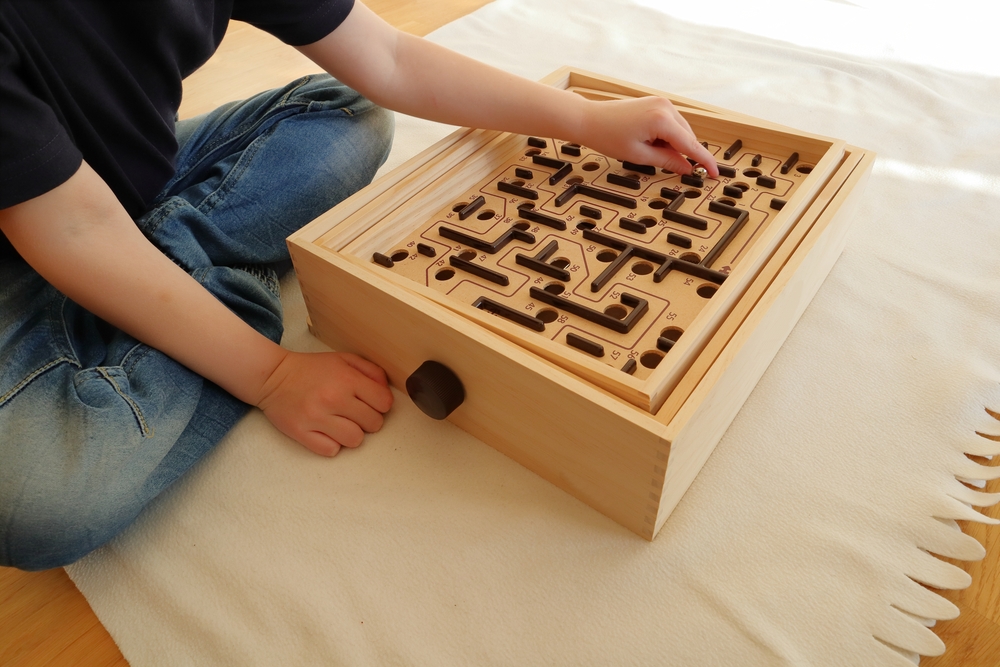
2. 收拾家中物件 並把物件分類
其實日常生活上不同的環節,也是鍛鍊腦筋的大好機會,例如收拾和分類。把物件有條理地分類,不單能提升孩子的組織能力,更能發揮孩子的創意。有時孩子的分類方法可能跟我們成年人不同,不過也不無他們的道理,家長不妨問一下孩子為甚麼會這樣分類,你便會發現原來孩子的觀察力可能比你更強,他們會用他們觀察到的細節作分類,所以家長不應要孩子根據成年人眼中的分類方法,以免打擊他們自我解難的主動性。
你可能會問,我家孩子不喜歡收拾物件,那該怎麼辦呢?在孩子還未養成收拾家中物品和分類的習慣時,一定要從遊戲開始,以提升孩子花氣力去完成「使命」的動機。例如可以舉辦「房間鬥整齊比賽」或「阿四日」,讓家庭成員互相幫大家執房等活動,以鼓勵孩子收拾和分類,也可以鍛鍊一下「腦力」!
3. 考記憶遊戲
坊間有很多記憶遊戲卡,例如把十數張牌反轉,輪流翻開兩張,如果翻開了相同的卡牌,便可以拿到自己手上。另外,坊間亦有些繪有不同物件的圖卡,家長可將它們打開排成一行,讓孩子看了然後反轉,再問孩子某一件物件在哪一張卡上。這些均是很好的記憶力遊戲,成年人或孩子更可以發揮更多創意,變換一下玩法以增加趣味性。
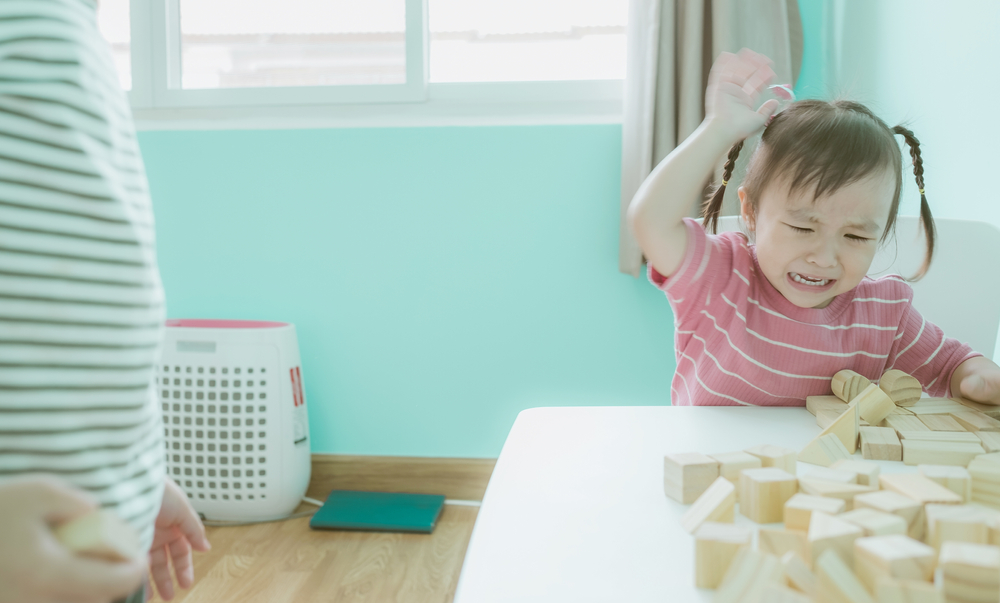

另外,憤怒是一種常見的情緒,孩子有,父母也有。當孩子嘗試表達其憤怒的情緒時,他們會以父母為一個模仿的對像,當父母對孩子憤怒,或父母之間爭吵等,孩子會以此等行為作為發達及控制情緒的重要參考(Bandura, 1977)。父母之間的爭吵、惡意嘲諷、甚至暴力,都會提升孩子對憤怒的敏感性,並干擾了孩子的正常發展(Cummings, Pellegrini, Notarius, & Cummings, 1989)。因此,想孩子有好脾氣,父母得先留意自己的相處之道。

1. 忽略有冒犯性的行為:若有關行為目的是希望得到某樣特定物件(如玩具),父母不應因為孩子的行為而給予滿足,也不需要因其行為而給予責罰,只需要不作回應便可以了;
2. 情緒角的使用:在家中設一安靜、沒有任何刺激或吸引的地方,作為讓孩子安靜的區域,當孩子爆發情緒,或作出不恰當行為後,可以安排孩子在情緒角安靜一下,這未必等如責備,而是讓孩子的情緒可以舒緩,情況就如便急需要上廁所一樣,這只是一個正常的需要。如果運用恰當,當孩子日後有情緒時,可能自然的就會跑到情緒角去舒緩一下呢!
3. 喚醒與憤怒不相容的情緒,特別如對受害者的同情心;
4. 減少接觸可能會觸動孩子憤怒的情況或事物:當孩子未完全建立一個自我控制的能力前,減少孩子憤怒的機會,也即等同減少了父母與子女之間的衝突;
5. 解釋其行為的後果;
6. 審視引起憤怒情緒的起因。
(Development Through Life, Barbara M. Newman, Philip R. Newman, Wadsworth, 2003, pp. 197)
上述的方案,針對不同的情況,如孩子因憤怒而對他人作出暴力行為,父母可以專注於解釋後果及喚起其對受害者的同情心;如因想得到某物件而發脾氣,父母可以忽略他的負面行為等等。其次,上述的方案可以組合使用,例如當孩子在情緒角平復了,父母可以再向他解釋後果。最後,當然要視乎孩子的能力而選擇處理方案,舉例說,孩子還未會說話,你卻向他十分鐘連環解釋後果,似乎只會增加雙方之間的衝突。
當父母決定了每一個情況的應對策略後,最重要的,就是一致性。簡單的說,一致性可以分為兩個層面:其一,同樣的行為都會使用同樣的結果,不會這次就使用忽略策略,下次卻使用責罵,這會令孩子混淆;其次,就是每一名照顧者都會使用同樣的方案,從而加強向孩子表明「這行為是不恰當的」這個訊息。
不靠獎罰 讓孩子努力學習


每個人都已經具備了內在動力,人早已擁有了把事情做好的願望。而這正是為什麼當我們給予孩子外在獎罰時,嘗試干擾孩子的行為時,他們的表現變得更糟糕,例如扼殺創造力、令判斷力下降等多種負面效果,這都是獎勵能換來的惡果。無論是物質還是心理上的獎勵,雖然都能短暫的刺激孩子的積極性,但卻無法讓孩子培養出長期的行為習慣,也無法讓他們的表現變得更好。
父母如何不單靠獎罰而讓孩子努力學習?原來只要懂滿足三種人類的基本心理需要,那麼孩子就可以自動自覺喜愛和投入學習。這三種人類的基本心理需要包括:自主、能力和關係。每個孩子也有發展能力的基本需要,要看到自己的能力有所提升,不要容讓那些無法理解的社會標準去改變自己的孩子。讓孩子學一些不合符成長階段的東西,是很危險的做法。我們要製造富挑戰性而又合適孩子能力的學習經驗,讓孩子感受到實在的成功感,提升他們對自己能力的信心,讓他們更有動力去學習。

如果這些理論能應用在孩子身上,是否也能應用在父母身上,從而為家庭帶來正面影響?答案是可以的。我們的要求孩子努力學習的同時,請父母們同樣努力改變自己的想法,誠如台灣搖滾樂隊同五月天的結他手石頭所說:「學校能教的,是知識,是技術;社會能教的,是相處,是合作;而孩子們在家學到的,是你們自己,是你們自己身為人的治國,當你們面對困難,面對挫折時解決的方式。」


撰文:香港家庭福利會註冊社工區家樑
2012 年,是香港中學會考文憑試的第一年。兩年前,對於中三學生們及家長如何面對選科及升學的問題,筆者已十分憂心。當年今日,有學生及家長選擇離場,升學外地。當然大部分的學生及家長都需要面對轉變,而我只能在有限的公開資料及分析中為他們引路。對於我和其中一位家長而言,這是一條信心之路。
這位家長曾在這兩年間不斷問關於新學制及考試的問題,其實他每次都上網更新最新的學制資料,並已成為專家了,仍不斷問老師及社工他對子女的支援及教導是否恰當。相處日久,筆者發現他其實是一位好爸爸,只是對兒子沒有信心,而且他對自己的管教能力亦失去信心。
因為他的信心建立在兒子的成績之上,行為之中,家居之內。筆者說的成績及行為,相信大家都會想到是考試成績及兒子平日的溫習態度。那麼家居之內呢?由於這位好爸爸的工作時間長,每天都要晚上 9 時後才回家,正是晚飯的時間。在言談中,他常提及回家看到兒子故作輕鬆,追看電視劇的情況。結果,他對兒子的了解和教導就只有在家居之內了,並對兒子表達在學校學習及課後補習的情況就投了不信任票。
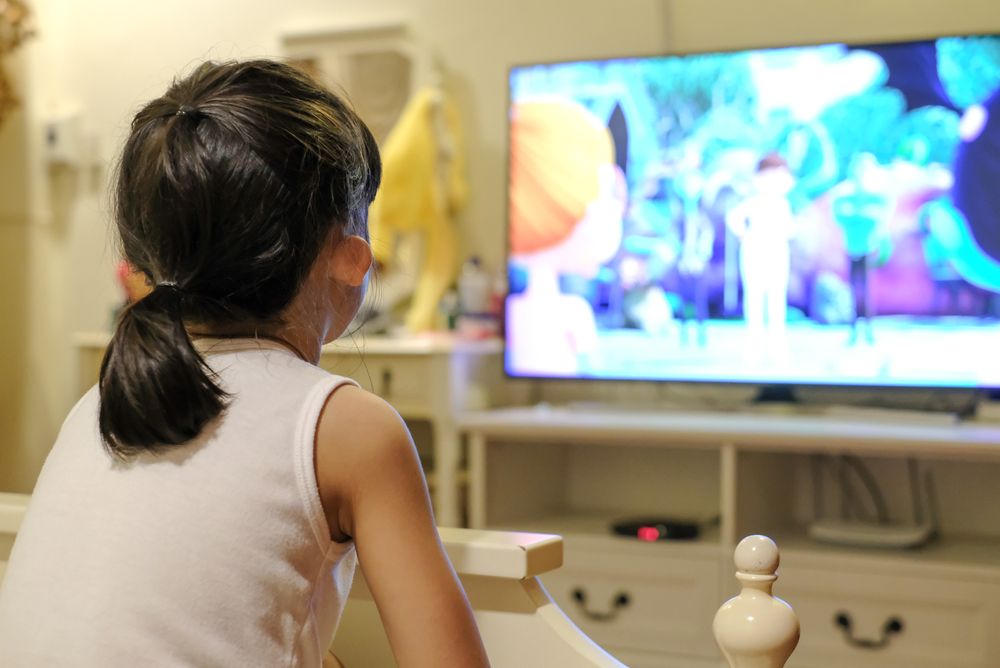
結果「你可不可以讓我看到你用功讀書呢?」就成為這位爸爸的口頭禪。雖然兒子心裡很想向父親解釋:「我每天由上課到深夜都努力做功課,難道連中場休息也不可以嗎?」但是,他口中卻回應道:「哦」,令這位父親的心中就只有無奈的憂慮。
「信心」是一件很奇妙的事,當我們看到孩子的成績進步了,分數高了,自然就有信心。但是,已成事實的事情又何需信心呢?我們生活中的信心,部分由親身經驗所轉化,但是真正的「信心」是事情未發生之前,對事情還有希望及良好的意願。不要小看一句「以你的能力,還可以發揮得更好」,在成績不如理想的時候,即使淡淡的一句說話,亦足以使孩子重拾自信,動力倍增。被別人信任是增強正面行為的元素之一,用正面的鼓勵字句表達你良好的意願,會為兒子帶來希望。在工作的還境中,你的上司及客戶對你工作的認同及信任,已足夠讓你回家有輕鬆的心情。而兒子等待爸爸的期盼是「想跟你安靜地吃一頓飯」,這是一個 16 歲的高中生哭著說的。
各位親愛的家長,你們是看顧子女成長的見證人,他們不是一出生就失敗的。在過去的十數寒暑中,你們使孩子成功地出生、長大及學習。他們努力地轉身、走路及上課,這是你們成功的印記,「以你們的能力,還可以發揮得更好」。請重拾對自己及他們的「信心」,不要放棄。
有關40周年校慶典禮事宜
東華三院洪王家琪幼稚園自1983年創校,轉瞬間已踏入40周年。在此衷心感謝各位家長歷年對學校的愛戴及支持,讓幼兒能愉快地學習和成長。現誠邀家長與學生出席參加40周年校慶典禮。有關內容臚列如下︰
日期︰2024年3月4日(星期一)
典禮地點︰基督教家庭服務中心(九龍觀塘翠屏道3號1樓)
典禮時間︰下午3時正至下午4時30分


撰文︰遊戲治療師馮祉禧
小一的子峰上廁所一段時間還未回來,老師便派男班長到廁所看看。過了一會兒,班長上氣不接下氣地跑回來,說:「整個廁所都濕透了!」於是,老師便親自查個究竟。到了洗手間,老師只見一片澤國,全地都是水和泡,而子峰正在其中一個洗手盤「洗手」。老師問:「你在做甚麼?」他答:「洗手和看看為甚麼有泡泡。」老師為免釀成危險,阻止了子峰的行為。
子峰就是一個滿有好奇心的孩子,但每次他的好奇總為其他人和自己造成一些不便。他喜歡凡事都會查問,更喜歡凡事都會作出嘗試。有一次,他為了試一試自己能否穿過椅背上的洞,把頭困了在那洞之中約一小時,之後工友用工具把椅子折開,他才能成功脫身。雖然他擁有無數可怕的經驗,但還未有令他卻步。老師們都感到束手無策,因為子峰不是壞學生,單靠懲罰是徒然的,還是要想想其他辨法。
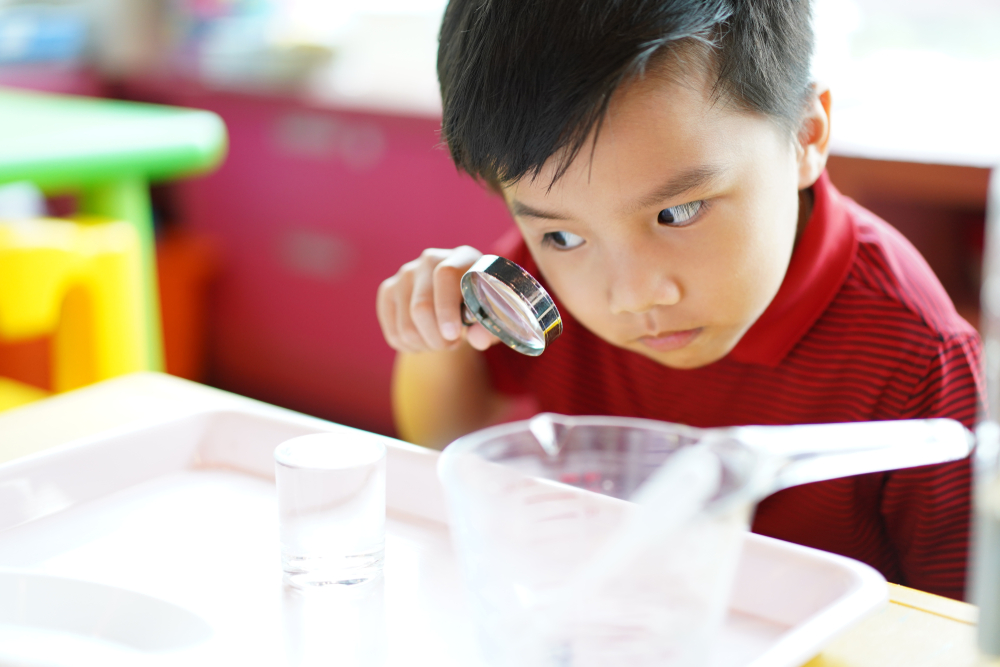
「淘氣」 多面睇
以「淘氣」來形容子峰的性格可算最為合適,而這性格也在兒童之中十分普遍,只是程度有所不同。甚麼是「淘氣」呢?我們很容易聯想到「曳」或頑皮等的字眼,大多都帶著貶義。可是,從正面的角度出發,淘氣也可以有很多好處。首先,不難發現淘氣的小孩是很愛玩的,他們無時無刻都擁有玩的動機,而這些動機往往都是來自他們的好奇心。他們透過不同的方法去滿足自己的好奇想法,有時侯他們更不理會後果和限制,親身嘗試探究解答疑難。其次,大部分「淘氣」的小朋友都有些小聰明,比別人更識玩,所以他們會以各種途徑發揮創意,想出神奇的方法去玩。綜合以上,「淘氣」可說是好奇和創意的混合,只是使用時未有適當的控制才會過界闖禍。
如果身邊有一個「淘氣鬼」可以怎樣做?
一丶放鬆心情
淘氣的孩子很容易令身邊的照顧者變得神經緊張,因他們所做的總是出其不意的,有時更令人感到尷尬。我們要明白淘氣是孩子其中一種本性,他們正在經歷學習的過程,我們要耐心地配合他們的成長速度,避免因為自己的面子而抑壓孩子的成長。

二丶制定界線
淘氣的孩子因缺乏界線概念,而常常越界。我們可跟他們約法三章,並切實執行。這樣既能確保孩子的自身安全,建立他們對規限的概念。
三、滿足好奇心
為了對症下藥,我們必需滿足他們的好奇心。方法是教導他們思考和找出答案的途經。例如,父母可教導他們透過閲讀找出答案,或帶他們到大自然訓練觀察力,這都可幫助他們面對將來遇上的難題。

